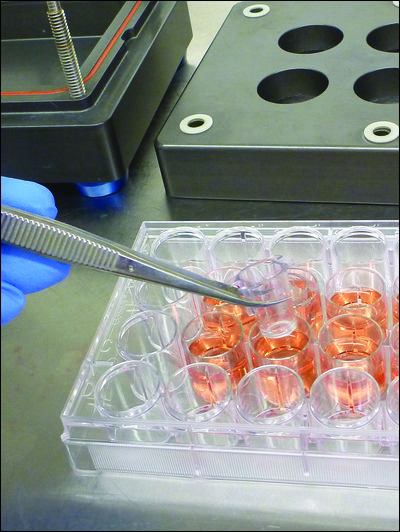
Contact Details:
Instron
Coronation Road
High Wycombe
Bucks
HP12 3SY
United Kingdom
Tel: +44 1494 456815
Alt. Tel: +44 1494 464646
Fax: +44 1494 456814
Send Enquiry | Company Information

Instron Provides Keele University with Instrumentation for Regenerative Medicine Studies
Company News Tuesday, May 20, 2014: Instron
As regenerative medicine carves out the future of health care, it has become critical to investigate and understand the relationship between cells and their mechanical environment. New tissue engineered products cannot be developed in a commercial setting without a solid foundation of how these cells behave in their native tissue. Prof. El Haj is working with an interdisciplinary group to understand and pursue translational research for regenerative medicine.
Instron partnered with Dr El Haj to provide the instrumentation needed to study the in vivo environment on the benchtop. For example, muscle contraction is very important for correct limb development in vivo. Research has shown that hydrostatic forces can mimic this developmental cue and promote bone and cartilage growth in fetal mouse femurs. Dr. El Haj is investigating this effect in a human developing limb model to determine how hydrostatic forces can be used to improve tissue engineered bone and cartilage products for regenerative medicine therapies.
“A key element in the design, which is critical for other types of developmental and cell studies, is the alignment with tissue culture plastics,” says Dr. El Haj. “This allows 3D soft tissues and cultures grown on inserts to be exposed to hydrostatic forces.”
To apply these developmental hydrostatic pressures on adult and embryonic stem cells for orthopaedic cell therapies, Instron designed a hydrostatic pressure bioreactor that is applicable to any dimension and mechanical integrity of cell-seeded construct. The bioreactor holds multiple formats of tissue culture plastics and enable high throughput of samples for analyzing simultaneously to facilitate the screening studies for the three classes of scaffold materials and cell isolates as well as human femur. The bioreactor generates a variable hydrostatic pressure and long term intermittent cyclical hydrostatic forces in a standard incubator accommodating both monolayer and 3D culture scaffolds at frequencies of 0.3 Hz and 1 HZ.
